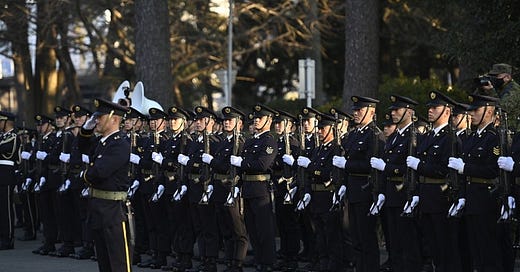Paper Tigers
U.S., Japan's record defense budgets intensifying geopolitical rivalry, Germany mulls reintroduction of compulsory military service
UPDATE:
Japan and the U.S. have adopted record-breaking defense budgets for 2024, with Japan accepting a 16-percent rise in military spending, and the U.S. authorizing $886 billion in annual military expenditure, which totals $28 billion higher than it did for the $858 billion it budgeted for 2023.
At the end of October, the Bundeswehr said it counted 18…




